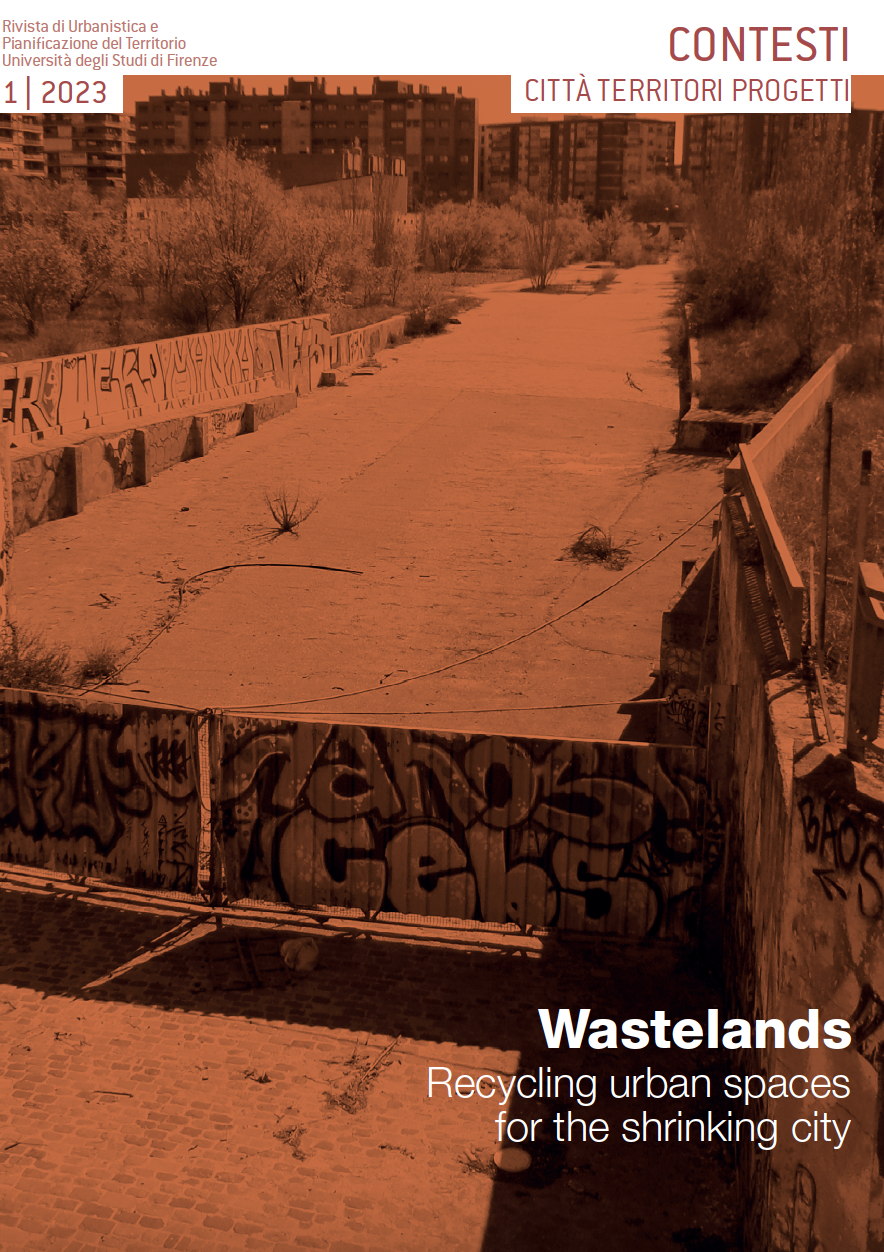Dismissione e produzione: Ripensare una nuova città produttiva negli spazi della dismissione fordista a Torino
Published 2023-09-12
Keywords
- post-industrial city,
- new production,
- decomissioned spaces,
- productive cities
How to Cite
Copyright (c) 2023 Luis Martin Sanchez

This work is licensed under a Creative Commons Attribution-NonCommercial 4.0 International License.
Abstract
The strong processes of economic repositioning that the West experienced in the last decades of the 20th century with the transition from the industrial economy to the so-called “enrichment economy” led to the emergence of new project themes within the territorial disciplines. The decommissioning of large industrial areas is seen by the design culture as an opportunity to re-found cities through new policies and new design devices. The case of Turin is exemplary of this process in Italy. A city that symbolises Italian Fordism, from the 1980s onwards it was invested by an incremental process of large industrial areas abandonment due to the crisis of mass production. This paper aims to discuss how, after the end of the first post-Fordist cycle, decommissioned spaces accommodate not only residential or tertiary practices as in the thirty-year neoliberal era, but also new productive functions. It does so with a descriptive approach, recounting the change in Turin’s production system and describing three exemplary cases of the new productive Turin: the new Pirelli in Settimo Torinese, Lavazza and the new Manufacturing Centre in Mirafiori. In this process we seem to be able to discern a paradigm shift in the design of the contemporary city, which does not deny but welcomes productive practices. However, this new model of the productive city in the West urgently needs to redefine visions, imaginaries and practices of the contemporary project.
Downloads
References
Berta G., Produzione intelligente: un viaggio nelle nuove fabbriche, Torino, Einaudi, 2014.
Berta G., Merlo E. (a cura di), Lavazza: una storia industriale dal 1895, Milano, Mondadori, 2014.
Berta G., Che fine ha fatto il capitalismo italiano?, Bologna, il Mulino, 2015.
Berta, G., "Postglobal: economia politica della nostalgia," in Rivista il Mulino, 2, 2017, pp. 318-325.
Bianchetti C., "Spina 3 e i paradossi della politica urbana," in Bagnasco A., Olmo C., (a cura di) Torino 011. Biografia di una città. Gli ultimi 25 anni di Torino, guardando al futuro dell'Italia, Milano, Mondadori Electa, 2008.
Bianchetti C. (a cura di), Territorio e produzione, Macerata, quodlibet, 2019.
Bianchetti C., Kerçucu A., Llevat Soy E, “Produzione e città. Per una politica dell’immaginazione,” in Archivio di Studi Urbani e Regionali, 125, 2019, pp. 5-25.
Boltanski L., Esquerre A., Arricchimento. Una critica della merce, Bologna, il Mulino, 2019.
Rapporto Mediobanca Unioncamere, Le medie imprese industriali italiane (2007-2016), 2018. http://mbres.it/sites/default/files/resources/download_it/mi_2018.pdf
Rapporto Rota Torino, 2000 https://rapporto-rota.it/rapporti-su-torino/1-lavori-in-corso.html
Rapporto Rota Torino, 2019 https://rapporto-rota.it/rapporti-su-torino/2019-futuro-rinviato.html
Vassallo I., "Metamorfosi produttive. Il carattere resiliente dell’impresa torinese," in Bianchetti C. (a cura di) Territorio e produzione, Macerata, Quodlibet, 2019.

